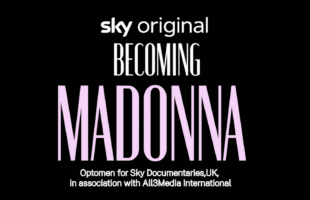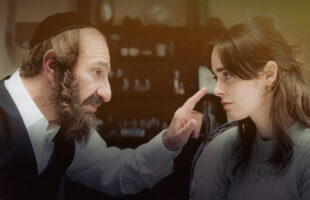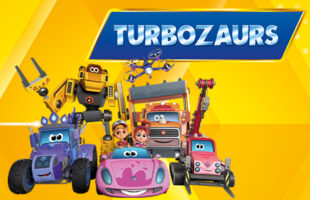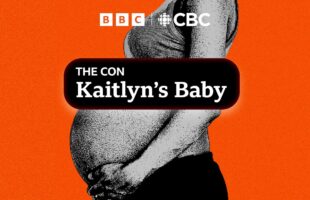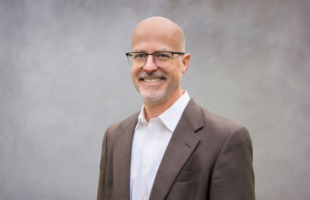HISTORY has created a new epic documentary series that tells how key moments or incremental milestones in the history of mankind led to the modern world. Mankind The Story of All of Us looks at the history of the human race through the ages, but in a way that is highly ambitious with the scale of its cinematic vision. The series uses CGI to bring to life dramatic reconstructions of the most critical events in human history as never seen before—examining and presenting what is unique about us to have made humans the dominant species on the planet.
Taking more than two years to complete, the new documentary is among the most in-depth TV series ever produced by HISTORY, and is the first series in the history of the network to premiere internationally at the same time. The series will have three narrations: acclaimed actor and Oscar nominee Josh Brolin will narrate the English language version; Datuk Jalaludin Hassan, a Malaysian actor and host of Malaysia’s Who Wants To Be a Millionaire? will voice the Malay language version; and acclaimed actor, writer and author Stephen Fry will lend his voice for the UK version.
Key global turning points
Presenting an overview of the human race, Mankind features events carefully chosen because of them being key turning points in mankind’s journey from being huntergatherer to global citizen, and how the lives of people in one part of the world are shaped by events in another.
The series is not names-and-dates history. It takes the viewers from the first flourishing of civilisation in Mesopotamia through to the discovery of America. Utilising the new field of “Big History”, which blends multiple disciplines to provide greater insight into the formation of the world, Mankind will draw upon links from geography, natural history and science. In every episode, the path of mankind’s progress will be unlocked through a set of mysterious keys. These will range from the first tools to the construction of the pyramids; to the birth of agriculture and the revolutions in military technology; to the Vikings’ landing in America and discovery of new worlds; and will culminate in the industrial revolution and the making of the modern world.
However, this is a great challenge because the world of mankind is teeming with histories of cultures current and past, of different civilisations’ rise and fall, and revolutions—industrial, computer, and space, to name a few—to be compressed in just 12 hours.
In an interview with TV ASIA Plus, Julian Hobbs, Vice President, Programming and Development at HISTORY, and one of the Executive Producers of the new series, says they have consulted dozens of global historians and experts to present a series of factually accurate universal tipping points, and the “common moments that were unlocked across the planet that made us who we are.”
“There’s a lot of interesting research being done right now, and really breakthrough ideas about how we are interlinked as humanity,” says Hobbs.
According to him, the series will show viewers how history is not a segregated story, but a universal one. “Of course, there are always going to be disputes and debates; but what we’re trying to tell is something in which all people, or literally approximately all in the planet can connect to regardless of race or nationality, and feel that we actually have a common history that links us together.”
Mankind follows the success of America The Story of Us, a 12-hour TV series that tells the extraordinary story of how America was invented.
“America The Story of Us was a very, very successful series not only in the United States but around the world. And part of that is (due to) the production technique, which is using cutting edge CGI, (for) creative and thematic reconstruction; and interviews with knowledgeable experts, to create a very dynamic story, a very lively, immersive story about who we are,” says Hobbs.
“It doesn’t feel like old-school history that you learn in high school. Rather, you’re planted right in the moment, you experienced the moment, in which key tipping points and moments in American history unfolded. Just before something was discovered, we meet the characters, we meet the players, we understand the scenario, and then we see the breakthrough. We see it through historical recreations of these moments, but the viewers are immersed in these moments, because they play like a Hollywood film,” he adds.
The same technique was applied to the entire story of Mankind. From the plains of Africa, to Rome, to the building of the Great Wall of China, all of these key moments will be brought to life using very dynamic recreations through CGI. “And then we’re going to relate them to who you are today,” Hobbs says. He adds that America was in a way, the dry run; the first half that set them up to tell the story of all of humanity.
When it comes to sustaining viewers’ interest, Hobbs says he sees no problem because the series is “the biography of you.”
“So you’ll want to stay tuned to discover who you are. It is not about them, there; it is about us, now. To understand who we are now, we need to connect the dots of who they were then. So, I really do call it the biography of us. To understand who we are, you need to see all the chapters that interconnect. If you stay tuned to the 12 episodes, you will walk out of your house viewing yourself and the world around you in a completely different way. It’s not about telling the story of the past; it’s about telling the story of who you are today, through the past,” explains Hobbs.
Mankind claims to be one of the most ambitious series in TV history. According to Hobbs, the series was created using Hollywood technique and quality because people are expecting nothing less for a programme of epic in scope. And when it comes to production, “the most expensive budget item is always involved in CGI, in which we have to do things like recreate buildings of The Great Wall, recreate an ancient battle, or recreate modern phenomena like the building of the Golden Gate Bridge.”
Hobbs says these things need to be enhanced, “so that the viewers could actually be immersed within Rome at the time. We’re not just telling them about Rome, we are situating them within Rome. This is what costs much.”
Hobbs says he classifies the series as a “megadocumentary” given its scope. “We live in an age in television, in cable, in global TV, of what we call the mega-documentary. I would put in that category Planet Earth, by the BBC. I would also put in that category, humbly, America The Story of Us. And there are others – I don’t mean to be exclusionary. We have the ability now to tell epic stories and to bring them to life through new technologies. We have a way (now) to tell the story of humanity, of the universe, of our experience; (and) we can have fresh compelling ways.”
“And that’s very exciting,” he adds. “I think it’s exciting for the viewers, and it’s exciting to push the envelope, quite frankly, to think about how we can make history not a thing of the past, but something that is relevant, entertaining, informative and exciting. And I think it’s the golden age of documentary right now.”


